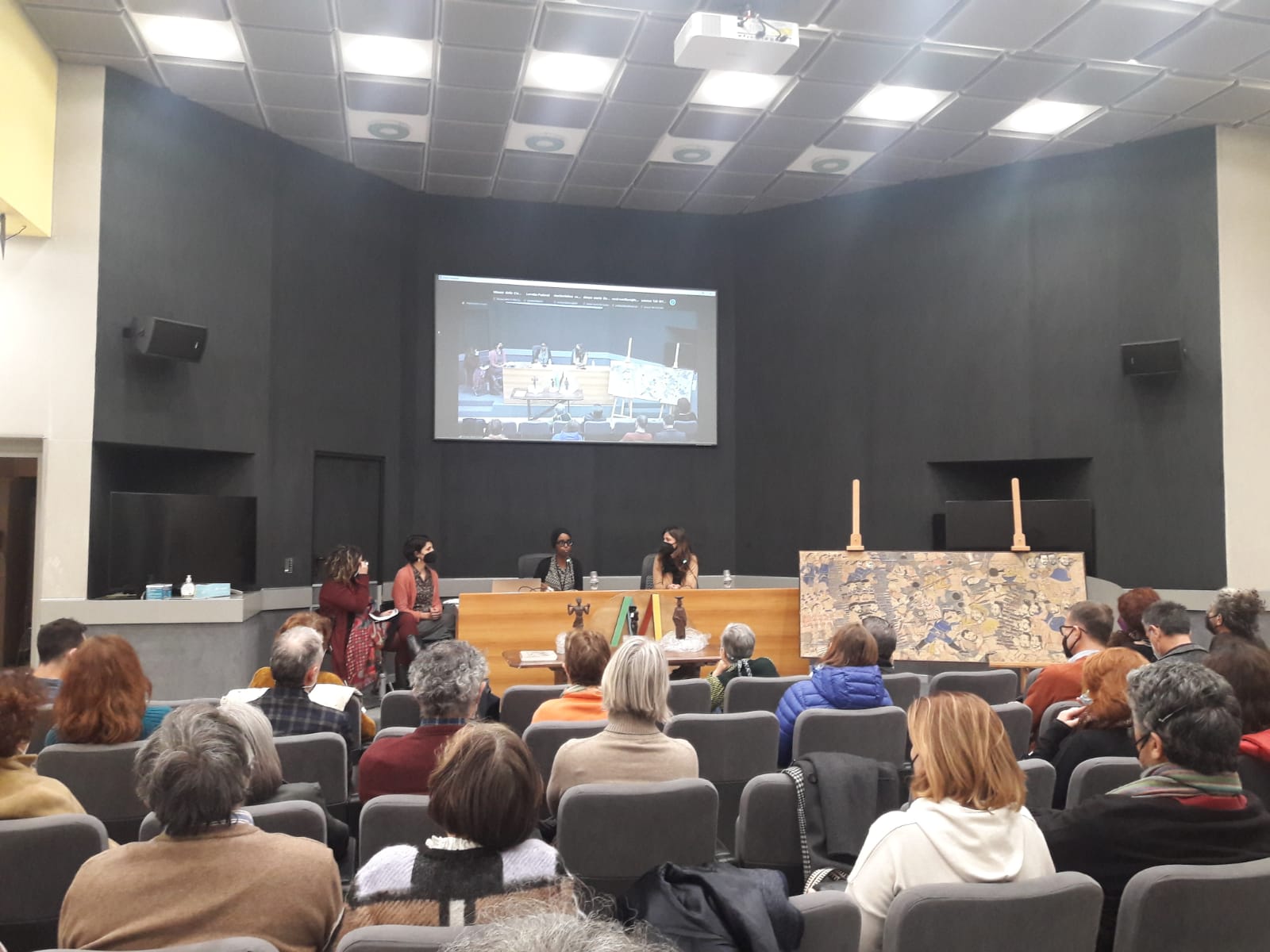Recap on the 'Unveiled Storages' events at the Museo delle Civiltà
The Museo delle Civiltà of Rome organised two meetings in the framework of the EU Project Taking Care, and the programme "Unveiled Storages".
The first meeting, on Saturday 12 February, was entitled “Narrating
through objects. A conversation with Simona Berhe starting from photographs of
the School of Arts and Crafts in Tripoli”. The
school of arts and crafts in Tripoli, founded by the Italians during the
Italian dominion, was one of the few educational institutions that the Italians
were able to provide in their colonies. Artefacts and objects produced within
this school were used for the various temporary colonial exhibits in Italy and
then entered into the collections of the colonial museum. Leaving from the
analysis of the role of this institution within the colonial framework, the
conversation with Simona Berhe, research fellow at the University of Bologna,
dealt with some crucial points of our work within the collections of the former
colonial museum. We explored the necessity to establish or re-establish, when
speaking about colonialism, the agency of the colonized subject. To enhance a
proper discourse around the legacy and the memory of colonialism, as we would
like to do within our museum, is fundamental to reflect on this theme and
within this conversation was possible to open a debate around, on one side, the
difficulty to recognize and establish the agency of the colonized subjects and,
on the other, how this issue affects the process of restitution of museum’s
objects subtracted from the colonies. From the issues and questions raised by
Dr. Berhe developed a debate about the role of neocolonialism in the current
conception of restitution that involved both the people who attended in person
and the online's audience.

During the second meeting, Africana. Between colonial stereotypes and contemporary narratives. Dialogue with Igiaba Scego and Chiara Piaggio, which took place on Saturday 19 February, we reflected on the colonial imaginaries and stereotypes that the western gaze, also through museum exhibitions, has constructed on the African continent. “Africana” is an anthology of novels written by African authors edited by Chiara Piaggio and Igiaba Scego. This is the first publication of a book series that involves further anthologies of African authors that will be published in the next years. In the intention of the authors, this book will serve as a tool to decolonize, through literature, the image of Africa. Their main purpose is to provide glances over the heterogeneity of this continent that cannot be reduced to the common imaginary that usually the name ‘Africa’ triggers in our perception. This anthology provides novels of authors with different backgrounds, countries of origins, writing styles, dealing with various themes and literary genres. The dialogue with the two authors started from the imaginary about Africa that this book aims to deconstruct, we recognized the authorship of colonialism in shaping and spreading this imaginary and the wide role played by the neocolonial relations in maintaining alive the stereotypes that featured the narration of the whole continent. The debate revolved around the urgency to face different images of Africa and the necessity to abandon a colonized image of the African realities. This element involved thoughts on our activities at the museum, about the necessity to establish that the realities exposed in the former colonial museum were deeply different from each other and the theoretical tools to use in dealing with the colonial narrations of these realities. Furthermore, the author addressed some themes related to the growth of the African literature, local consumption, and the publishing industry and how the literary activity is relevant for deconstructing, reshaping and proposing a different imaginary about Africa as a plural entity. The following debate with the public touched on some of the various stereotypes that still nowadays are affecting the perception of Africa, for instance the relation with technologies, their inconsistency and the ways to deal with them.